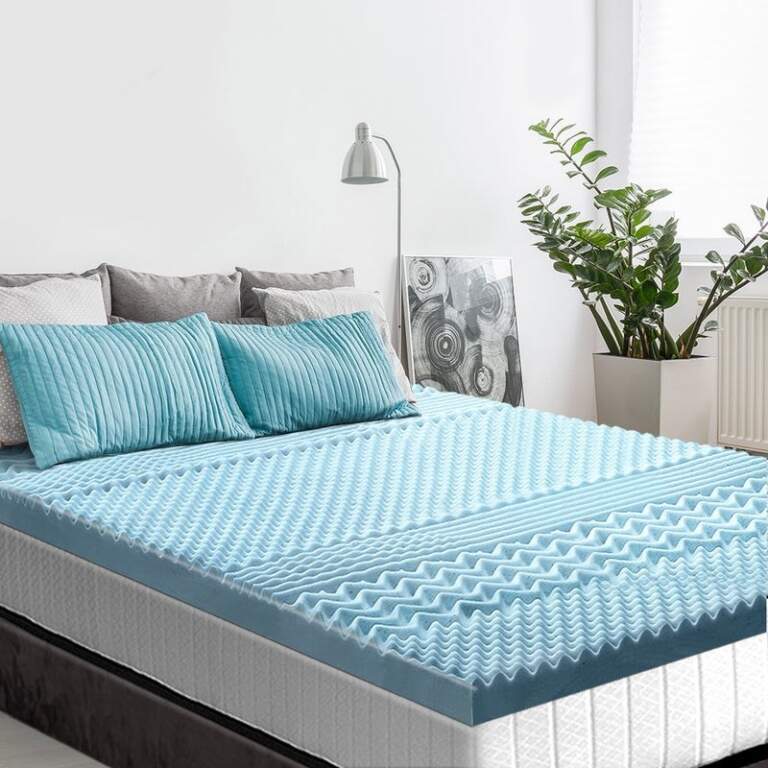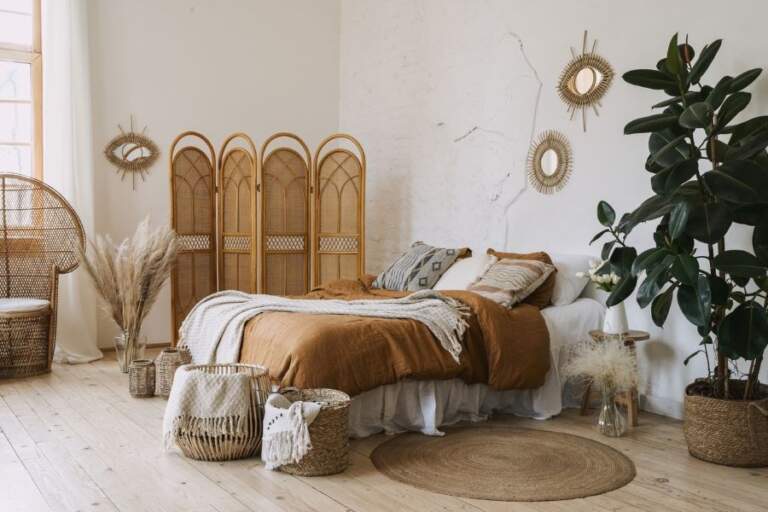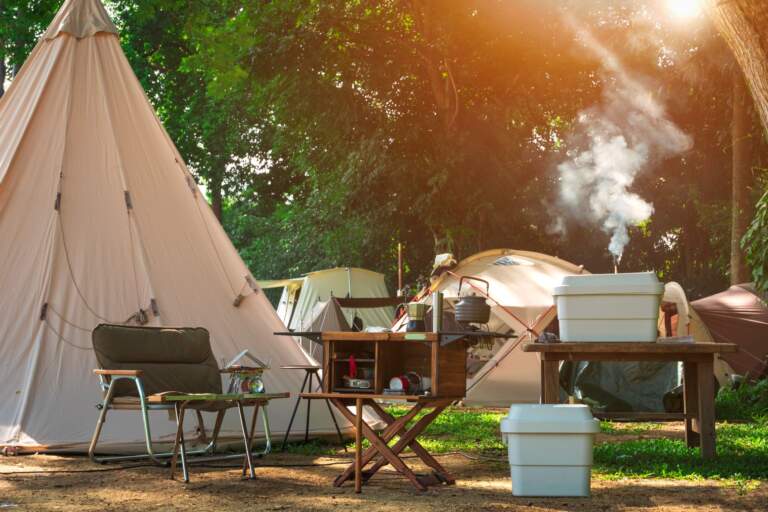Whether you’re working from home or in the office, looking for a place to write or game online, a desk is a vital furniture piece for completing your study set-up. But finding the right one can seem like a daunting task.
That’s where we come in. Our step-by-step buying guide will help you find the perfect desk for any chosen space.
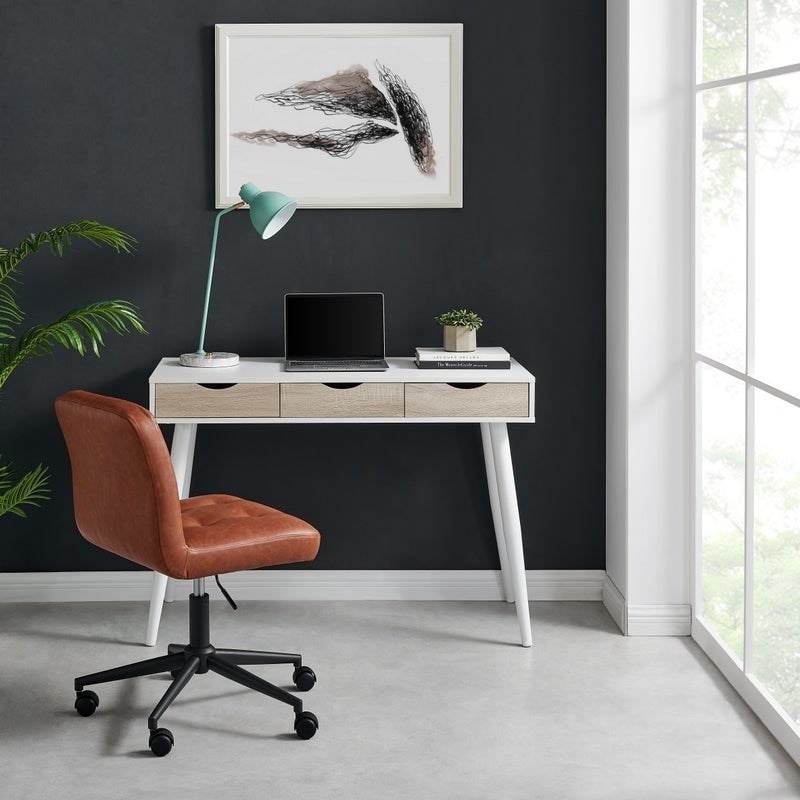
Consider Functionality First
To find a suitable desk for you, first establish why you need it. Alternate desks are designed for different users, so ask yourself, what’s your purpose for buying a desk? Are you looking for a desk suitable for gaming? Or perhaps you need not only a desk but a place for all your papers and notes. Whatever the reason, thinking about functionality first will make finding the right desk for you, simpler.
Tip: It’s also essential to think long-term. A desk is a lasting investment for your office space. So, when you’re searching for a desk, remember to look for a diverse option that will be suitable for years.
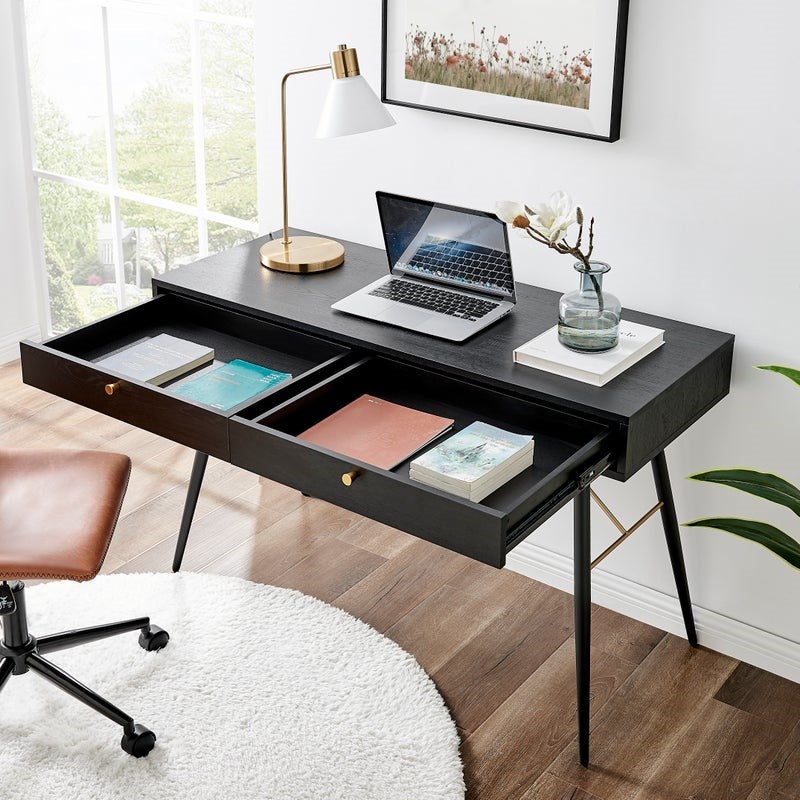
Available Space & The Appropriate Desk Size
Once you’ve worked out the desk’s purpose; you can move on to finding the right size for your chosen space.
Desks aren’t limited to a study; they can be used in big lounge rooms, family spaces or bedrooms. But regardless of where you decide to place your desk, you need to ensure it will fit within that space.
In the room, you plan to place your desk, start by measuring the available area – width, depth, and height. For easy mobility, there should be at least a few centimetres behind the desk for the chair (especially for a home office).
The average height of a desk is around 70-76 centimetres, so if you have a fixed office chair (not adjustable) ensure it will fit beneath it without getting stuck.
Tip: make sure there’s a power point close by for easy access.
Your Budget
When looking for a desk, also keep your price range in mind. Desks come in various materials, sizes and types which are priced differently. Standard, simple desks can cost as little as $50 but luxurious, executive options can cost more than $500.
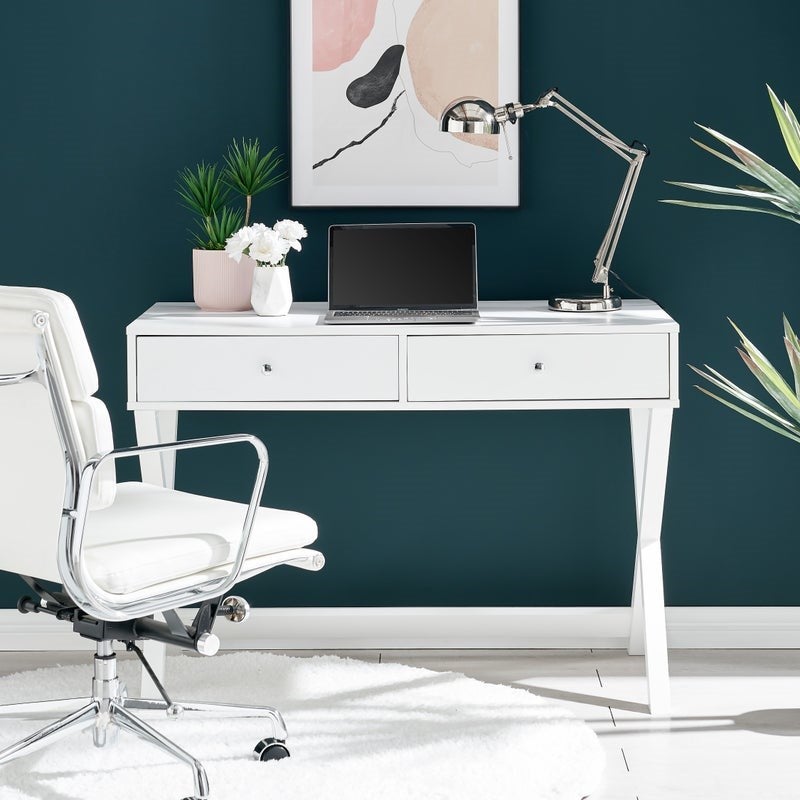
Types of Desks

Desks come in various designs to suit different spaces and purposes. The most common types of desks include computer, executive, corner, standing and writing desks.
-
1. A Computer Desk
-
The simple, diverse option. If you’re working from home or looking for a desk for a bedroom, a computer desk might be the choice for you. As the name suggests, a computer desk is designed to hold a computer or laptop. It has a wide surface area to store all your equipment and a few drawers for important documents or office supplies. A simple computer desk is an affordable and highly functional option.
-
2. An Executive Desk
-
The luxurious option. Perfect for a private office or home study. An executive desk can make you feel like a CEO. It has a spacious surface equipped with two large cupboards on either side for storage and clutter. Although an executive desk is a pricey choice – not ideal for small spaces, it is a functional and long-lasting investment.
-
3. An L-Shape or Corner Desk
-
The option with lots of space. Suitable for extensive areas. An L-shaped or corner desk is an extension of the standard computer desk. Its elongated design offers tons of free surface space to spread out while working. It has either drawers or shelves for storing office equipment and can maximise your working space to boost productivity.
-
4. A Standing Desk
-
The flexible option. Perfect for everyone. Improve your health and change your stance while you work with a standing desk. This modern desk allows you to easily switch between sitting and standing to promote better posture. It’s elegant, versatile, and very easy to use.
-
5. A Writing Desk
-
The traditional option. If you are looking for a space where you can write or get creative, a writing desk might be the solution for you. A writing desk is, as the name suggests, designed for writing – perfect if you enjoy doing that by hand. Its sleek design means it’ll fit perfectly in small spaces, and it even has a few small drawers for extra papers or supplies.
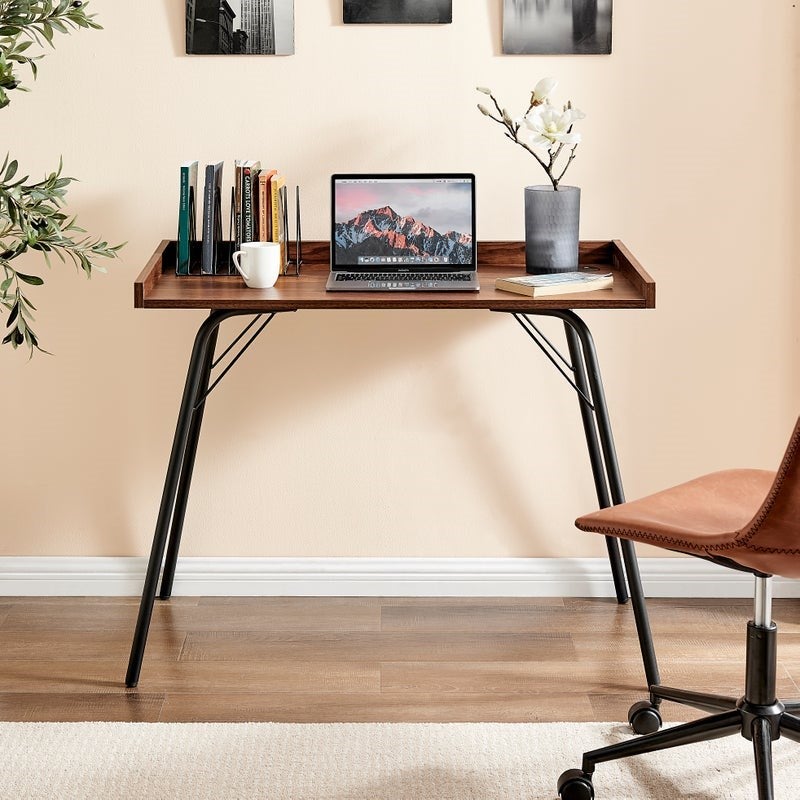
Desk Materials
Desks are most commonly made of wood or metal, although some feature a glass top. When choosing a desk, find a material that will help tie the room together and compliment your existing style.
-
1. Wooden Desks
-
Bring a natural element into your space and add character with a wooden desk. Wood is a timeless material choice. It has the ability to work well with any style and usually compliments all materials. It’s also highly durable and very easy to clean.
-
2. Glass Top Desks
-
If you’re looking for a desk for a tight space, then a glass-top desk might be the choice for you. The modern desk is easy to maintain and has the ability to make a room feel bigger.
-
3. Metal Desks
-
Metal is a very sturdy material with a chic look. Like wood, it’s a medium that can work in any space and with the proper care, can last well into the future. Metal desks also come in a wide variety of sizes, colours, and designs to suit your needs.
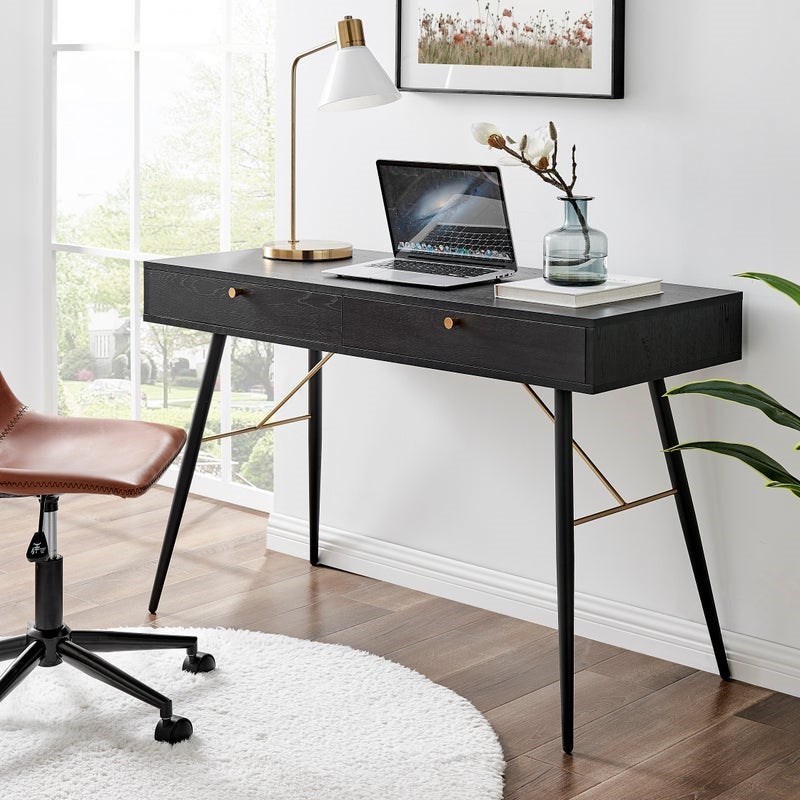
Your Existing Style
To avoid a clash of colours and design, ensure you choose a desk that complements your interior, whether that be traditional, simplistic, modern, or rustic.
Don’t worry; this isn’t hard to do. There are two ways to ensure your desk ties in with your room’s style and enhances its appeal.
The first is to look for a desk that complements the existing bold colours in your space. For example, choosing a wooden desk to complement your white walls.
The other way is to look for existing, small pops of colour in your space and match them to the desk’s shade. For example, matching the light brown in a painting to a wooden desk for symmetry.
It’s also essential to understand how different hues affect a space. Light shades can make a space look bigger and brighter, whereas darker colours can bring a space together and make it feel less empty.
Consider Cable Access
Whether you’re going to be using your desk for working or gaming, you probably have multiple monitors, lots of cables and wires. You also probably know how annoying it is trying to tidy them for practical use. So, when looking for a desk, see if it features a cable hole or two to help you hide away and organise those bulky wires.
Don’t Compromise on Storage
Clutter is inevitable, and we can all use more storage, especially when it comes to working. So, never forget about storage options for your desk, whether that be drawers or shelves. Both will help you clear more valuable surface space as well as sort your work items and supplies.
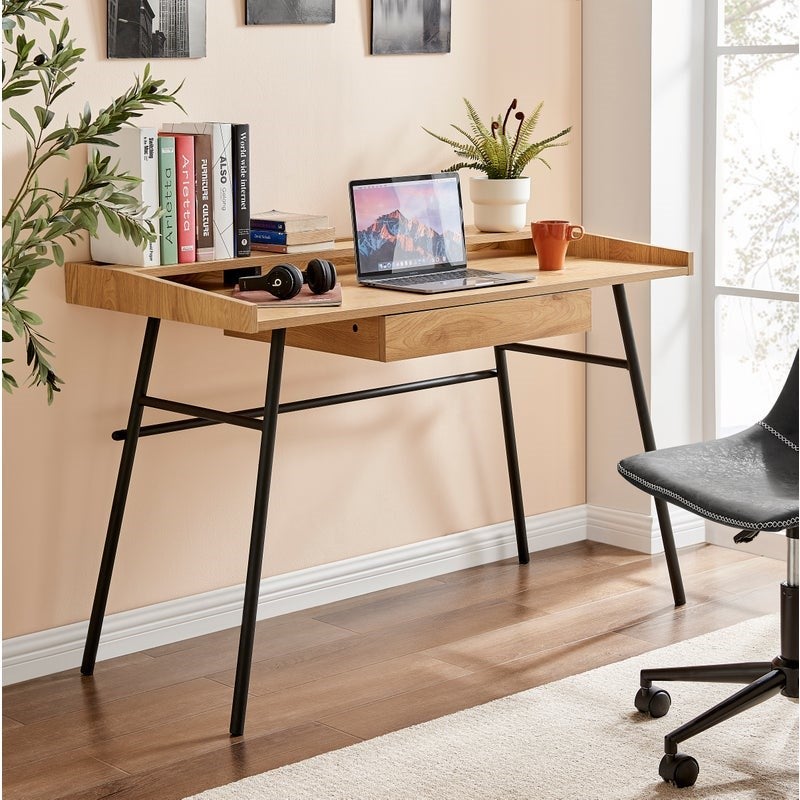
With these simple steps, you can now go out and confidently buy the right desk for your space.



